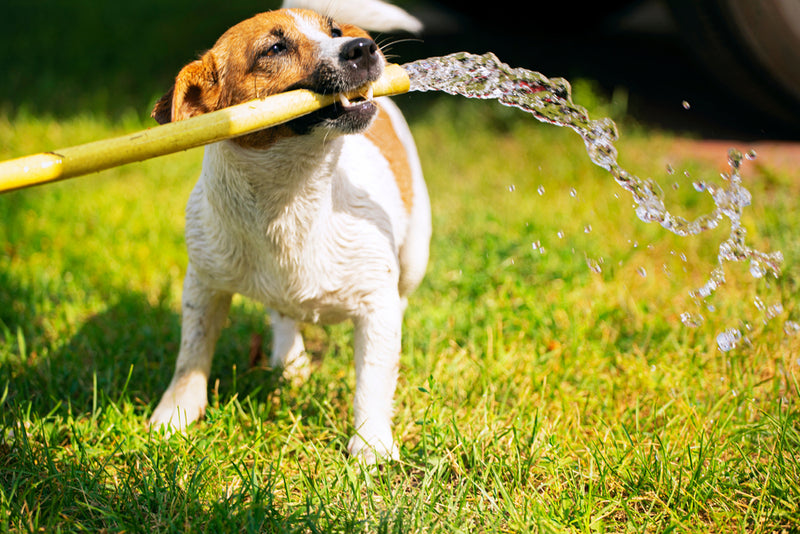
Tips to Maintain Your Dog's Excellent Dental Health
Dental health plays a significant role in the overall health of pets. To emphasize the importance of good oral hygiene in dogs, the American Veterinary Medical Association promotes each February as Pet Dental Health Month. This organization wants pet owners to attend to their dog's dental hygiene at home and to know when they should make a vet appointment.
It’s no secret that nobody enjoys stinky dog breath. Sometimes, a case of bad breath can occur because of mischievous pooches chowing down on some garbage. In this case, fresh water, doggy toothpaste, and a few hours will resolve the issue. But for most cases, if your dog's breath continues to stink the next day, it could stem from neglected oral hygiene and not just one smelly snack.
Even worse, consistent bad mouth odors should alert pet parents that their dog might be suffering from even more severe health problems, like periodontal disease. This common disease often starts around three years old in dogs. Periodontal disease can lead to severe pain and even organ damage if left untreated. Thus, taking great care of a dog means learning how to support excellent dental health at home and knowing when it's time to call upon your veterinarian.
What pet parents should know about pet oral care
Dogs should get a dental checkup from a veterinarian at least once a year. Pets who get regular checkups should have this exam included in their regular visit.
For some dogs, a yearly checkup might not prove sufficient. In addition to foul odors, any missing, cracked, or discolored teeth should signal that it's time to schedule a prompt appointment with the vet. Other concerns that should raise alarms include oral bleeding or swelling, trouble chewing, and refusal to eat. These problems almost never resolve themselves, but vets can provide effective treatments.
To minimize the chance of oral health problems with your dog, attend to these regular oral hygiene tasks at home:
- Purchase a canine tooth or finger brush and a specially flavored toothpaste for dogs. Get your pet acquainted with daily brushing as early as possible. Exercise patience with younger or older dogs as they adjust to this new routine. Move the brush in gentle circles and pay particular attention to the area between the teeth and gums.
- If you can't brush your pet's teeth daily, try offering a dental chew approved by the American Veterinarian Health Council. These handy treats can help break up plaque before it turns into tartar. You can also opt for a chew toy. The repeated gnawing will help your dog scrape off any plaque that’s built up throughout the day. To choose an appropriate chew toy, check if you can dent it with your fingernail. If your nail doesn’t leave an impression then the toy is too hard. Dogs might break their teeth if they enthusiastically try to chew too-hard toys.
Support your dog's overall health with nutritional supplements
It’s important to remember that dental health should be a priority all year long, not just during Pet Dental Health Month!
The same goes for your pup’s overall health. Moe's Multi-Plus Bites are carefully crafted for all-over enrichment. These chicken-flavored supplements provide essentials like omega-3s and vitamins to support your dog’s immune system, coat, and digestive system. You can feel satisfied that you're providing extra wellness support, and your beloved pet will enjoy a tasty bite.




